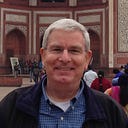Stop Treating Diseases

We rightly extol medical heroes — the physicians, nurses, and even janitors who work under the threat of COVID-19 to treat patients stricken with this malady or support those who do. We call them heroes because they save lives with drugs and devices wielded with knowledge and skill. But there are some problems here that heroism cannot address.
We are discovering that COVID-19 often leads to bodies that will probably be more susceptible to diseases that are ordinary and endemic. Many survivors have weakened organ systems from lungs to hearts to kidneys and psychological disorders that include PTSD and clinical depression. Despite the best efforts of our medical heroes, many — too many — people will face the rest of their lives with compromised health. They are more susceptible to future infections as well as the usual host of non-communicable diseases: cancer, heart disease, and diabetes just to name a few.
The necessary response in the short term is to practice social distancing and stay at home if at all possible. The challenges with this approach run from the inconvenient (working from home) to frustrating (working at home with children) to risky (going to work and exposing ourselves to the virus) to dangerous (going to work in close quarters). All of these levels contribute to one outcome, the decline in business activity in many sectors and the complete shutdown to some. Even the business of medical care is in recession as elective procedures and even medically-necessary but non-urgent treatment is halted. The rest of the economy from restaurants to car dealerships to realtors to barber shops are in economic free fall.
COVID-19 kills people without remorse because it’s a virus and is following a bio-chemical imperative to attach itself to cells. Its lethal effect extends to economies as the global trading system shudders to a halt. Its impact will last beyond even those directly affected. Children’s education is getting disrupted. The issue for schools is far more than teaching children to count or read because learning habits of a lifetime are not being formed at crucial stages of intellectual and social development.
People with underlying health issues from obesity to diabetes to hypertension all encounter COVID-19 with fewer tools to fend off the disease. These factors contribute to their higher rates of catching the disease and dying from it.
We are working heroically to save lives. Undoubtedly many are being saved, but heroism in one sense is wasted because much of the pain we now feel — medical, economic, and social — was avoidable. For people in public health the solution has always been clear, effective, and cheap. Prevent disease so you don’t have to treat it.
We have designed an American modern life where physical activity and healthy diet have been programmed out. The result starts with a few extra pounds and continues into obesity. Our children are subjected to 40,000 advertisements on TV alone, far too many about the fun of sugary foods rather than healthy fruits and vegetables. Almost a fifth of children are obese (18.5%). That’s 13.7 million in real numbers. They can look forward to lives impaired and even shortened by the usual suspects — diabetes, heart disease, strokes, etc.
Such bad habits persist and grow because picking up a burger and fries or a carb- and fat-laced pizza is an easy fix for dinner by exhausted parents. Parents and kids get fat, fail to exercise, and fall prey to the inevitable diseases of diabetes, hypertension, stroke, and heart disease. (We’re only going to mention tobacco once, right here, as the most evil of bad habits because we knew long ago that it was bad.) This list does not include polluted water, filthy air, and more guns than people that all contribute to bad health.
We have inverted logical health priorities to reward systems of disease, damage, and death. Rather than practicing prevention — universal vaccination, cities and towns designed for physical activity, food systems that deliver healthy diets, safe streets, and universal healthcare — we allow diseases to sicken, maim, and kill our people. Whether its diabetes or cancer, much of the pain is avoidable, but only if we undertake a program of societal prevention.
We need to stop treating disease and start preventing it.
